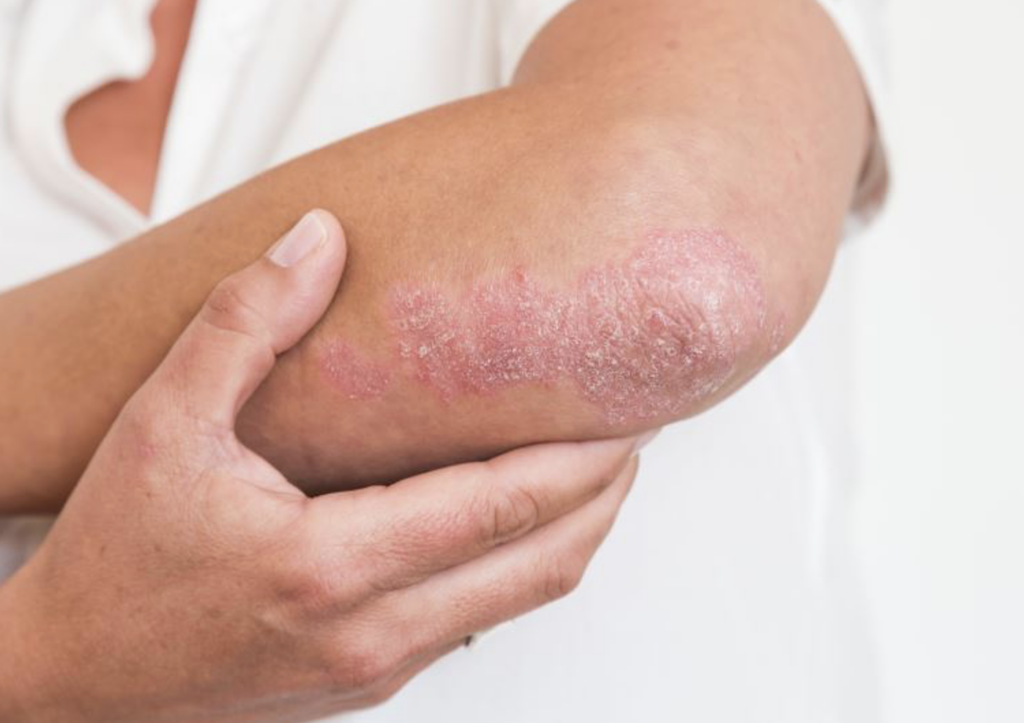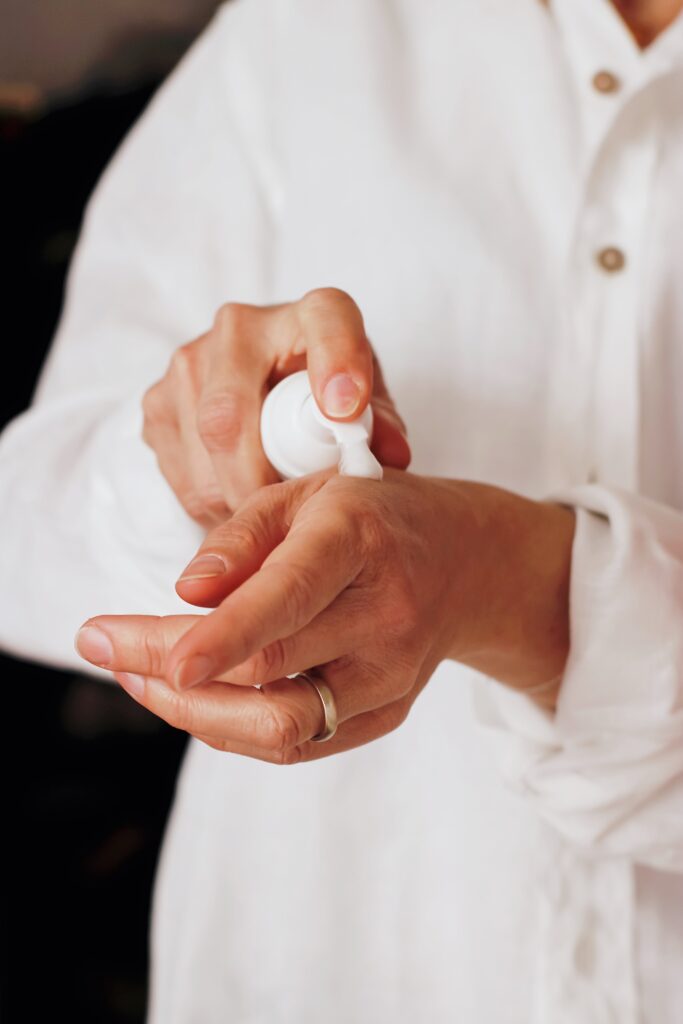
Advanced stem cell therapy has the potential to promote healing of damaged skin and alleviate pain from psoriasis
Researchers and scientists worldwide have been researching stem cell therapy as a potential treatment for psoriasis because it can help restore proper immune system response, and in turn, reduce pain and inflammation as well as help the body promote healing of damaged skin.
A disease that causes a wide range of skin conditions such as itching, burning, and pain, patients with psoriasis suffer from many symptoms. Psoriasis is an autoimmune disease that can cause skin cells to multiply up to 10 times more rapidly than normal. That’s because the body’s immune system mistakenly attacks healthy skin cells, causing them to grow and divide so quickly – causing symptoms such as:
- Red patches of skin covered with silvery scales
- Dry, cracked skin that may bleed
- Itching, burning or soreness
- Thickened, pitted, or ridged nails
- Swollen and stiff joints
These patches are typically red, itchy, and painful, and can appear anywhere on the body. It’s not contagious, but it is a chronic condition with no known cure.
A common and chronic condition
Psoriasis usually appears in early adulthood. For many people, it affects just a few areas. In severe cases, psoriasis can cover large parts of the body. The patches can heal and then return throughout a person’s life in periods of remission and then unpredictable flare-ups of varying levels of severity and frequency.
Many patients know what it’s like to suffer from psoriasis because it’s a very common condition. About 2 to 3 percent of all people have some form of psoriasis and it impacts men and women equally. It can also run in families because about one-third of patients have a family member who also have the disease.
Some people with psoriasis can also develop a more serious form of disease – psoriatic arthritis – that causes join pain and swelling. The National Psoriasis Foundation estimates that between 10 to 30 percent of patients with psoriasis also have psoriatic arthritis.

No cure, but several widely used treatments for psoriasis
There is no cure for psoriasis, but there are several treatment options are available to help manage symptoms and improve quality of life. These include:
- Topical treatments: Creams, ointments, and lotions applied directly to the skin to reduce inflammation, itchiness, and scaling – including corticosteroids, vitamin D analogues, and retinoids
- Phototherapy: A type of therapy using ultraviolet light to slow the growth of skin cells and reduce inflammation
- Systemic medications: Prescription drugs taken orally or by injection to help control the immune system and reduce inflammation – including methotrexate, cyclosporine, and biologic agents
- Lifestyle changes: Changes to diet, appropriate exercise, and reducing stress
- Moisturizers regularly: Keeping skin well-moisturized can help reduce itching and scaling
For severe cases, cyclosporine, a medication that suppresses the immune system can help relieve symptoms, but cyclosporine may damage kidneys or increase blood pressure.
Mesenchymal stem cells offer psoriasis patients new hope — based on new research
Because psoriasis is an autoimmune disease, it can be difficult to treat because of the way the body’s immune system functions.
The immune system is designed to recognize foreign pathogens and signal other cells – through an inflammatory response that help is needed to repair an injury or attack infectious microbes.
This is a natural process. Although inflammation may be unpleasant, we need at least some inflammation when it’s necessary. But with autoimmune diseases, the immune system doesn’t function correctly and perceives threats that don’t exist. With psoriasis, it senses that skin cells are foreign tissue, so it and attacks healthy skin cells.
Researchers and scientists worldwide have been researching stem cell therapy as a potential treatment for psoriasis because it can help restore proper immune system response, and in turn, reduce pain and inflammation as well as help the body promote healing of damaged skin.
Unlike medications that may not be effective in the long term or cause side effects, stem cell therapy takes advantage of the body’s natural healing processes.
Research shows that when mesenchymal stems cells (MSCs) are administered, they can help signal other cells in the body to restore a more appropriate balance between the body’s immune response to stop further damage as well as reduce excess inflammation.
MSCs have been shown to have anti-inflammatory effects, which can help psoriasis patients. These cells can also balance the body’s overactive immune response that leads to inflammation and the development of skin lesions.
Stem cell therapy for psoriasis involves injecting stem cells into the affected area and/or administering them intravenously. The cells naturally migrate to the damaged tissue and signal other cells to promote healing.
There are many different types and sources of stem cells. Some clinics use mesenchymal stem cells harvested from the patient. At BioXcellerator we use cells from umbilical cords because research shows that these cells are among the most effective in stimulating healing, reducing inflammation, and modulating the immune system.
 Results based on recent research
Results based on recent research
Several studies have investigated the use of stem cell therapy for the treatment of psoriasis, with promising results.
In 2015, a study published in the Journal of Translational Medicine looked at the safety and effectiveness of using MSCs to treat psoriasis in humans. The study involved 28 patients with moderate to severe psoriasis who received either a single dose of MSCs or a placebo injection. The results showed that the MSC treatment group had a greater reduction in psoriasis symptoms than the placebo group.
And a more recent study published in the Journal of Dermatological Treatment in 2019 looked at the use of MSCs in combination with phototherapy to treat psoriasis. The study involved 30 patients with moderate to severe psoriasis who received either a combination of MSCs and phototherapy or phototherapy alone. The results showed that the combination treatment group had a greater reduction in psoriasis symptoms than the phototherapy alone group.
More research is needed to fully understand the potential for the use of stem cell therapy to treat psoriasis, but the discoveries so far demonstrate exceptional promise to promote healing and reduce inflammation.

